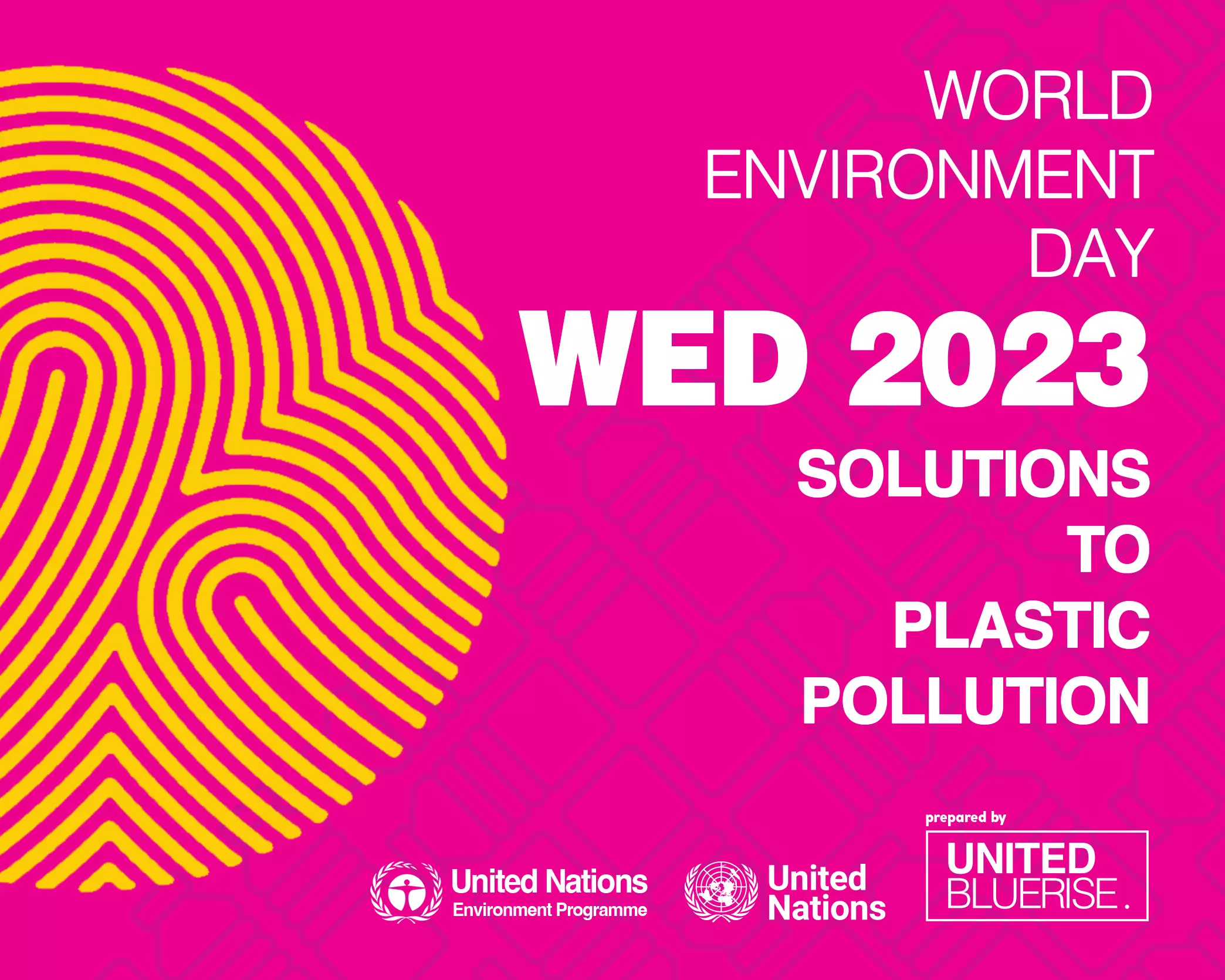World Environment Day 2023: Solutions to Plastic Pollution

World Environment Day, celebrated annually on 5 June, is the biggest international day for the environment. This year the event is hosted by Côte d’Ivoire and marks the 50th anniversary of World Environment Day, which will focus on solutions to plastic pollution. It is as a reminder that people’s actions on plastic pollution matters.
Global Challenges to Plastic Pollution
More than 400 million tones of plastic is produced every year worldwide, half of which is designed to be used only once. Of that, less than 10 per cent is recycled. An estimated 19-23 million tones end up in lakes, rivers and seas annually. Microplastics – tiny plastic particles up to 5mm in diameter – find their way into food, water and air. It is estimated that each person on the planet consumes more than 50,000 plastic particles per year, and many more if inhalation is considered. Discarded or burnt single-use plastic harms human health and biodiversity and pollutes every ecosystem from mountain tops to the ocean floor.
With available science and solutions to tackle the problem, governments, companies and other stakeholders must scale up and speed actions to solve this crisis. This underscores the importance of this World Environment Day in mobilizing transformative action from every corner of the world.
A resolution was adopted in 2022 at the United Nations Environment Assembly to develop a legally binding instrument on plastic pollution, including in the marine environment, with the ambition to complete the negotiations by end of 2024. The second meeting of the Intergovernmental Negotiating Committee (INC-2) will be held in Paris at the end of May 2023. The instrument is to be based on a comprehensive approach that addresses the full life cycle of plastic.
Solutions to plastic pollution
More than 400 million tones of plastic is produced every year worldwide, half of which is designed to be used only once. Of that, less than 10 per cent is recycled.
An estimated 19-23 million tones end up in lakes, rivers and seas annually. That is approximately the weight of 2,200 Eiffel Towers all together.
Microplastics – tiny plastic particles up to 5mm in diameter – find their way into food, water and air. It is estimated that each person on the planet consumes more than 50,000 plastic particles per year –and many more if inhalation is considered.
Discarded or burnt single-use plastic harms human health and biodiversity and pollutes every ecosystem from mountain tops to the ocean floor.
With available science and solutions to tackle the problem, governments, companies and other stakeholders must scale up and speed actions to solve this crisis.
This underscores the importance of this World Environment Day in mobilizing transformative action from every corner of the world.
Fifty years celebrating World Environment Day
Led by the United Nations Environment Programme (UNEP), World Environment Day (WED) is the largest global platform for environmental public outreach and is celebrated by millions of people across the world.
How UNITED BLUERISE Can Help
We, at UNITED BLUERISE, aim to promote rewarding sustainable solutions where the health benefits of a “pure-living” truly meet in parallel with environment challenges of a “plastic-free” world.
As a global movement, we also strongly invite individuals and groups by choosing to reuse and saving millions of pieces of plastic from ending in nature, which is surely the principal to reduce plastic pollution and of course the climate change. In this pathway, we can together keep our environment and community a plastic-free for the future.
The goal for all of us is to stand up for an ideal and unite towards a better world by sharing facts, ideas and advice on how to live a more responsible life. Our consuming culture is polluting our planet. We need prompt lifestyle changes when it comes to single-use plastic. Our goal is ultimately to reduce plastic waste. Plastic is not only polluting our planet and impacting communities around us, but it’s also making its way into our bodies through the air we breathe, food we eat, and water we drink.
Article: QL-7134
Source: un.org, worldenvironmentday.global